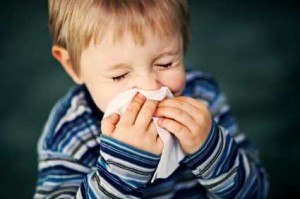Do you suffer wheezing, sneezing, watery eyes and itchy eyes and arms around your cat? For me, these allergy symptoms are a small price to pay for the company of my cats – although some mornings when I wake with a heavy head and red eyes I wonder!
 Cat allergies are not caused by cat hair as most of us assume. They are caused by a protein found in cat saliva, urine and skin cells, or dander. The immune systems of people with allergies mistake this harmless protein for a dangerous invader like a virus or bacteria and mount a full scale attack on it.
Cat allergies are not caused by cat hair as most of us assume. They are caused by a protein found in cat saliva, urine and skin cells, or dander. The immune systems of people with allergies mistake this harmless protein for a dangerous invader like a virus or bacteria and mount a full scale attack on it.
Here are some tips for minimising our allergy symptoms without giving up our cats.
- Make your bedroom a cat free zone
- Reduce the load of cat allergens in your bedroom by washing or replacing bedding, curtains and pillows. Then cover pillows and mattress with allergen-proof covers.
- Open windows wide at least once a day to air the house and dilute the allergen load
- Send your cat outside, preferably into an outdoor run, to disperse some of the dander
- Eliminate allergen traps such as carpet, rugs and upholstered furniture as you can. Carpet accumulates up to 100 times more allergens than vinyl or wood flooring. If you can’t take it up steam clean it regularly and vacuum with a high efficiency particulate arresting (HEPA) filter or us and allergen-proof vacuum cleaner bag.
- Brush your cat outside and/or in an outside enclosure to minimise contamination of your home with dander
- Wipe the dander away with a moist cloth or wipe to remove saliva and dander.
- Spray the house with anti-allergen sprays
- Use a low dust cat litter and ask non-allergic family members to clean the litter box frequently
- Take the antihistamines, decongestants, eye drops and aerosol inhalers that your doctor suggests. Antioxidants such as Vitamins C and E also have anti-allergen effects.


